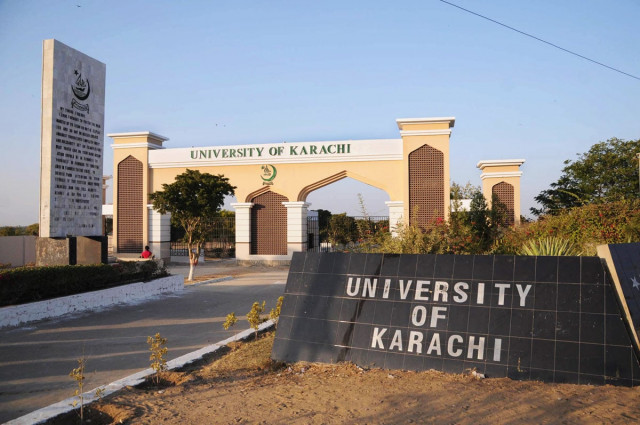KU told to drop decades-old KSP quota, shift to full merit admissions
Karachi-Sindh-Pakistan admissions policy in place since 1990

The Public Accounts Committee (PAC) has directed the University of Karachi (KU) to discontinue its decades-old Karachi-Sindh-Pakistan (KSP) admissions policy and immediately adopt an open-merit system based solely on Sindh domicile. The instruction came after it was revealed during a PAC meeting that KU continues to grant admissions under the KSP quota - in place since 1990 - instead of a uniform merit-based system.
The meeting, chaired by PAC Chairman Nisar Khuhro, reviewed KU audit paras for 2021-2023. Attendees included Secretary Sindh Higher Education Commission Moeen Siddiqui, KU acting vice chancellor Prof Dr Haris Shoaib, Registrar Dr Imran Siddiqui, and senior officials.
When asked if KU had switched to open merit, Registrar Dr Imran Ahmed said the university, with syndicate and academic council approval, had been following the KSP formula since 1990, with only "one or two faculties" now using open merit. Khuhro questioned whether separating Karachi from Sindh in admissions was justified, noting that institutions like NED University had long used test-based merit systems.
"Karachi is part of Sindh, and students holding Sindh domicile have the right to admission based purely on merit," Khuhro said, directing KU to review the KSP policy and ensure all future admissions follow an open-merit entry-test system. The PAC also requested a progress report at its next meeting.
Shaheed Benazir Bhutto Chair
The committee expressed strong displeasure over KU's failure to make the Shaheed Benazir Bhutto Chair functional despite Rs422 million already spent. Khuhro questioned why the chair, handed over 13 years ago, remained inactive.
KU administration said additional funds were required and a PC-I had been submitted for approval. The PAC instructed the university to operationalise the chair immediately without further delay.
Printing presses incur losses
The PAC was informed that the Sindh Government Printing Press at Governor House suffered Rs281 million in losses during 2022-2023, primarily because provincial departments outsourced printing despite having dedicated budgets.
The Director General Audit noted that the press spent Rs395 million against an allocated Rs114 million during the two years and had not maintained annual accounts since 1970. Officials said the press handles government budget books, gazette notifications, and other official material, but departments frequently outsourced printing without obtaining mandatory NOCs from the press.
The press management added that only Sindh Rangers and the provincial Ombudsman had received NOCs and that the press had sufficient manpower and a centralised system capable of handling all departmental printing.
It was also disclosed that the Sindh Government Printing Press in Khairpur incurred Rs40 million in losses. Directing the Chief Secretary to instruct all departments to route official printing through government presses, Khuhro stressed that this was essential to revive revenue and prevent recurring losses.



















COMMENTS (7)
Comments are moderated and generally will be posted if they are on-topic and not abusive.
For more information, please see our Comments FAQ